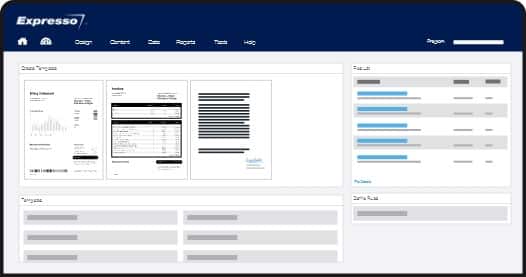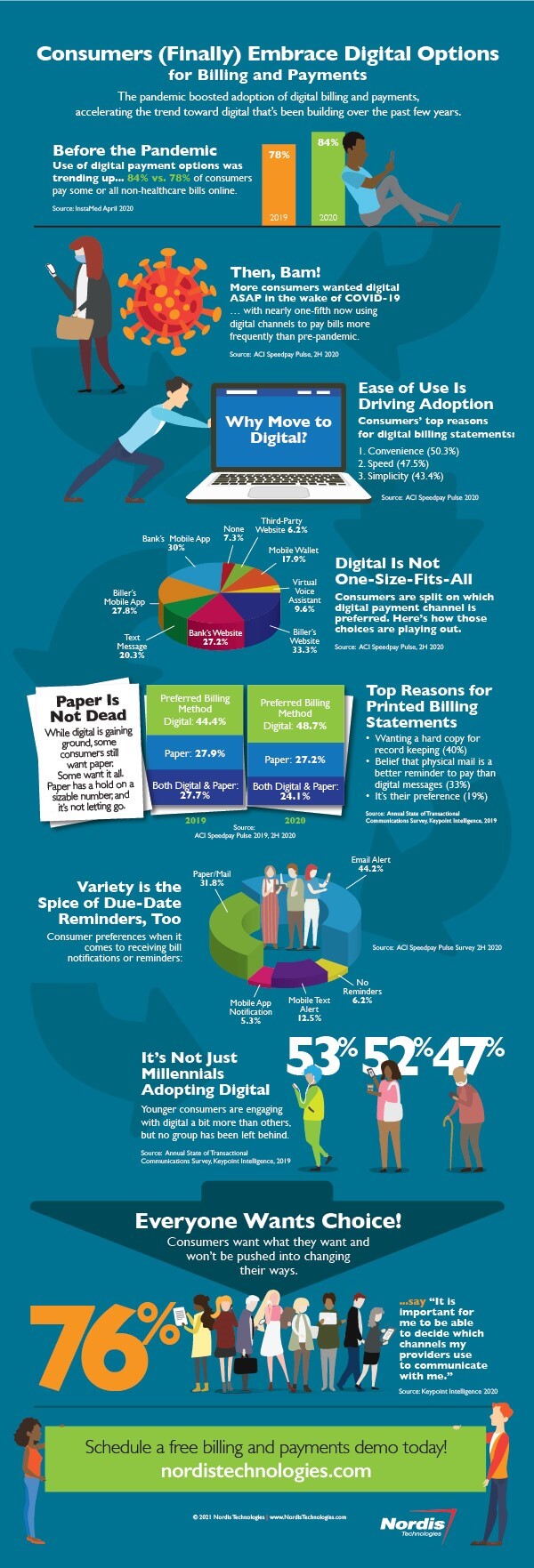What Is a CCM Platform?
A Customer Communication Management (CCM) platform is a software solution that enables organizations to create, deliver, and manage customer communications across multiple channels. This can include emails, text messages, and print materials.
CCM software platforms automate the process of creating these types of customer communications, which can significantly streamline workflows. The automation features in CCM platforms help businesses ensure consistency, efficiency, and compliance in their communications.
Today’s CCM platforms have evolved to meet the diverse needs of modern businesses. It is a helpful tool that empowers staff to create personalized, engaging communications that can be tailored to individual customer communication preferences. The ability to customize your communications is crucial in today’s competitive market, where customer experience can make or break your business.
Why Is a CCM Software Platform Important?
To build and maintain strong relationships with your customers, effective communication with them is crucial. Having a central CCM platform to manage communications is vital for improving efficiency and delivering a positive customer experience. CCM software can help you:
- Streamline communication processes – from creating letters, emails and texts to sending them out to reviewing analytics.
- Empower teams to generate templates and easily make changes directly in the software without having to wait on a vendor.
- Elevate the customer experience by allowing for more personalized communications and providing different channels based on consumer preference.
- Reduce errors and ensure consistent, personalized interactions, ultimately leading to higher customer satisfaction.
Be sure to select a CCM platform that supports your organization’s needs best. In this guide, we’ll primarily discuss CCM software focused on transactional communications.
Benefits of a CCM Platform
Investing in a CCM platform offers numerous benefits to organizations sending transactional communications.
Empower Staff
A centralized CCM platform allows staff to create templates and make real-time changes, reducing dependency on external vendors. This minimizes back-and-forth communication and waiting on proofs, leading to faster turnaround times, cost savings, and better job satisfaction.
Efficiency
Automating communication processes like data collection, list scrubbing, and file processing speeds up workflows and saves time on repetitive tasks. Automation also reduces the risk of human error and ensures greater consistency across communications.
Better Customer Experience
Customers now want personalized communications with choices for how they are received. A robust CCM platform gives you customization options and omnichannel capabilities to send via print, email, or text, delivering a better customer experience.
Cost Savings
Reduce costs by lifting reliance on vendors to perform simple tasks like minor edits that can be handled in-house. These savings can be significant, especially for organizations with high volumes of customer communications.
Visibility and Control
CCM software makes it easy to log in from anywhere, view reports, and track activity from a central dashboard. You gain comprehensive oversight of all communications, enhancing consistency and compliance.
Streamline Operations
Combining print, mail, email, and text communications in one platform saves time and simplifies processes. A CCM platform should let you consolidate reports, audit trails, and archives while also updating distribution lists and automating the handling of returned mail, bounced emails, and texts.
Digital vs. Print: Customers Demand Choice
The shift towards digital communication is undeniable. Even industries that have been slow to adopt modern technologies in their communications are now embracing digital solutions. However, don’t discount print communications just yet – they are still popular with many customers and aren’t disappearing anytime soon.
Modern CCM platforms have omnichannel capabilities – meaning they cater to both digital and print needs. The CCM software you choose should provide flexibility and enable you to fulfill a variety of customer preferences (including print, email and text/SMS/MMS communications) through one central platform.
Consider these recent findings regarding customer communications preferences:
- 81% of U.S. consumers feel they should have a choice on how they receive important communications from service providers (Two Sides North America, 2023).
- 49% of consumers prefer digital billing methods (ACI Speedpay Pulse 2020).
- 46% would consider switching to an alternate provider if their current one forced them to go paperless (Two Sides North America, 2023).
- 27% of consumers want both digital and print statements (ACI Speedpay Pulse, 2023).
It’s clear that, when it comes to customer communication, flexibility and choice are the name of the game. A comprehensive CCM platform should support both digital and print channels, allowing organizations to easily transition between the two as needed.
Check out our infographic on consumer demand for digital communication:
Related read: Digital Transformation is the Great Enabler of Excellent Customer Experience

Combine CCM with Print and Mail Fulfillment
When your CCM software provider also offers print and mail outsourcing, customer communications run more smoothly. A single provider ensures seamless data transfer and system integration, reducing errors and delays. This streamlined process saves time and money by eliminating the need for multiple vendors and ensuring a cohesive understanding of your communication needs.
This is particularly important when dealing with transactional customer communications that contain sensitive personal information like statements, invoices, and critical notifications. Handling these types of communications with a single, experienced partner decreases the potential for data exposure when transferring from vendor to vendor.

Combine CCM with Bill Presentment and Accounts Payable Platforms
Integrating your CCM platform with Electronic Bill Presentment and Payment (EBPP) systems and accounts payable platforms can dramatically streamline your operations. Combining these three functions within one platform allows for more efficient management of billing, payments, and vendor interactions. All these functions should “talk” to one another and exchange information seamlessly.
By integrating these systems, organizations can provide a unified experience for customers, from receiving a bill to making a payment. This integration reduces the complexity of managing multiple systems and improves the overall customer experience.
Questions to Ask a Potential CCM Platform Partner
When considering a CCM solutions partner, be sure to do your due diligence to ensure the platform fits your needs.
Here are some questions you should ask a potential CCM partner:
Understanding the key features of a CCM platform helps you determine if it meets the needs of your business. Look for features like omnichannel capabilities, automation, reporting, customization, and security.
Ask a potential partner whether it’s an omnichannel communication platform – that is, can it manage email, text, and print/mail? Ask about the specific processes and tools used for each type of communication. While print and mail is still going strong, customers are moving toward digital options, so you’ll want to be sure your CCM platform can handle the transition.
You’ll want to find out how security is handled within the platform, especially if your industry deals with highly sensitive information, like finance or healthcare. Ask what security and privacy certifications have been fulfilled. If you are in healthcare, be sure the system is HIPAA-compliant. The CCM platform should also have SOC 2 Type 2 certification, which ensures that third-party service providers store and process client data securely. Ask about the specific measures in place to protect data and ensure compliance with industry standards.
Your CCM software partner should offer ongoing support for onboarding, assistance, and troubleshooting. Ask about the types of support available, such as training, technical support, and customer service. Also discuss the level of service support you need – do you need a partner who you can outsource print and mail activities to? How much help will you want in creating the communications letters and documents? Make sure the partner is able to support you however you need it.
The ideal scenario is a partner who offers a CCM platform combined with print and mail fulfillment. Otherwise, you will need to find a separate print and mail vendor who understands and can work with the CCM software. By choosing a partner who offers both the software and the print/mail service, you streamline processes, save time, reduce costs, and gain better protection of sensitive data.
Combining customer communications management (CCM) with bill presentment software offers truly seamless operations for staff and enhances the customer experience. When you choose one partner that offers both systems, you streamline the billing and payment process by allowing customers to receive, view, and pay their bills through a unified interface. This combined solution also elevates the customer experience by providing timely communication, reducing confusion, and increasing the likelihood of on-time payments. This unified approach ensures that all customer interactions are efficiently managed and tracked in one place, leading to better overall service and customer satisfaction.
Since every company is unique, you should ask specific questions about how the CCM platform can be tailored to fit your requirements. If your business grows, can the platform scale with your business to accommodate more volume? If possible, ask for a demo to see precisely what can be customized and scaled.
Many CCM software providers cater to certain industries. For example, industries that have a high volume of transactional communications include healthcare, finance, lending, property management, utilities, and hospitality. Ask what kind of experience a potential partner has in your industry to ensure they understand your specific requirements and challenges. Ask for case studies or references from organizations in your industry.
















